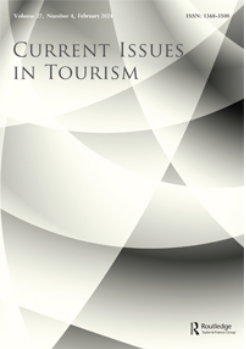Retirement consumption puzzle in tourism: evidence from CHARLS
IF 4.6
3区 管理学
Q1 HOSPITALITY, LEISURE, SPORT & TOURISM
引用次数: 0
Abstract
ABSTRACTStudies have shown that tourism consumption is an effective way for active ageing by improving older adults’ well-being and quality of life. However, there is currently a literature gap on post-retirement tourism consumption. This study used the fuzzy regression discontinuity design to explore the changes in tourism consumption after retirement with a longitudinal database, China Health and Retirement Longitudinal Study. We found a retirement consumption puzzle in tourism consumption amongst older adults, as well as gender differences. Furthermore, the inhibition effect of retirement on tourism consumption of older people can be alleviated by strengthening family interaction, enhancing their participation in social activities and providing tourism products-based gender heterogeneity.KEYWORDS: Tourism consumptionretirement consumption puzzleactive ageingconstrainsregression discontinuityJEL: D1D12J26 Disclosure statementNo potential conflict of interest was reported by the author(s).Additional informationFundingThis work was supported by National Natural Science Foundation of China: [grant no 72272158]; National Natural Science Foundation of China: [grant no 42371242]; National Social Science Fund of China: [grant no 22&ZD190]; Natural Science Foundation of Guangdong Province: [grant no 2021A1515012005].旅游中的退休消费困惑:来自CHARLS的证据
摘要研究表明,旅游消费是积极老龄化的有效途径,可以提高老年人的幸福感和生活质量。然而,目前关于退休后旅游消费的研究还存在文献空白。本研究采用不连续性模糊回归设计,以中国健康与退休纵向研究为数据库,探讨退休后旅游消费的变化。我们发现老年人旅游消费中存在退休消费之谜,以及性别差异。此外,通过加强家庭互动、提高老年人社会活动参与度和提供基于性别异质性的旅游产品,可以缓解退休对老年人旅游消费的抑制作用。关键词:旅游消费、退休消费、困惑、主动老龄化、约束、回归不连续披露声明作者未发现潜在利益冲突。本研究由国家自然科学基金资助:[批准号:72272158];国家自然科学基金项目[批准号42371242];国家社科基金[批准号22&ZD190];广东省自然科学基金项目:[批准号2021A1515012005]。
本文章由计算机程序翻译,如有差异,请以英文原文为准。
求助全文
约1分钟内获得全文
求助全文
来源期刊

Current Issues in Tourism
HOSPITALITY, LEISURE, SPORT & TOURISM-
CiteScore
15.50
自引率
10.00%
发文量
230
期刊介绍:
Journal metrics are valuable for readers and authors in selecting a publication venue. However, it's crucial to understand that relying on any single metric provides only a partial perspective on a journal's quality and impact. Recognizing the limitations of each metric is essential, and they should never be considered in isolation. Instead, metrics should complement qualitative reviews, serving as a supportive tool rather than a replacement. This approach ensures a more comprehensive evaluation of a journal's overall quality and significance, as exemplified in Current Issues in Tourism.
 求助内容:
求助内容: 应助结果提醒方式:
应助结果提醒方式:


